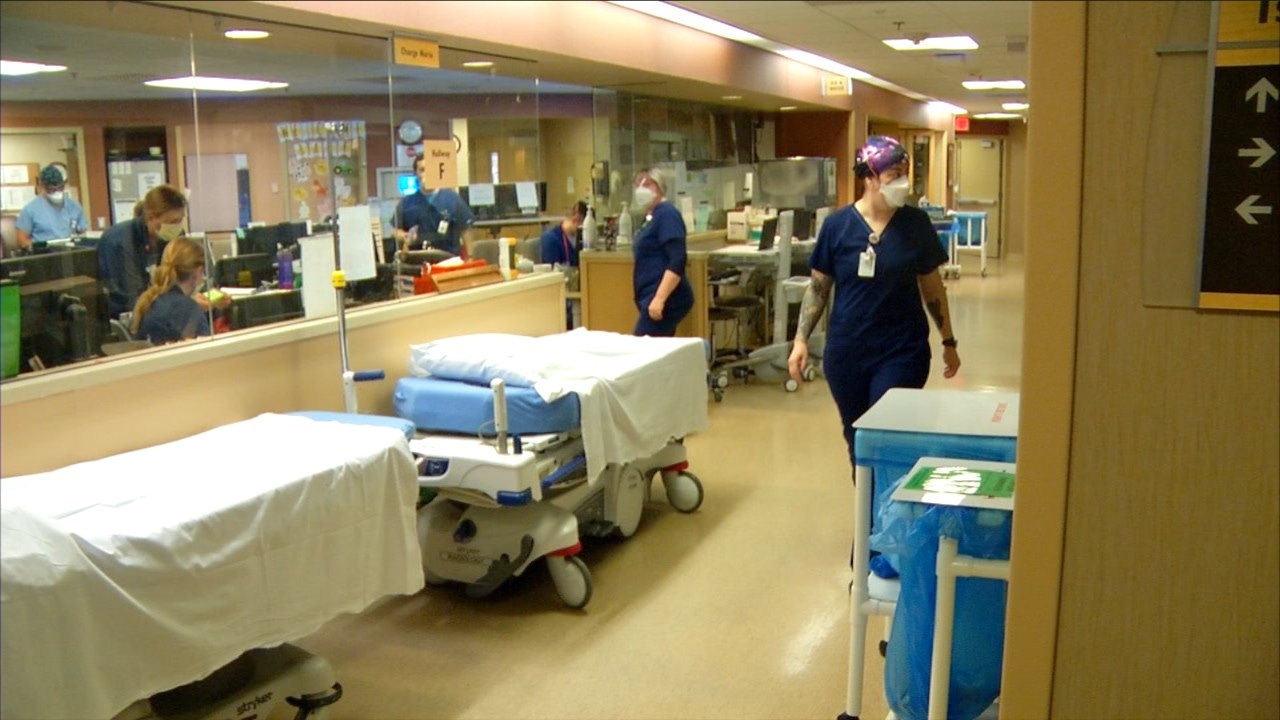ICUs get reprieve from mass COVID-19 admissions, but rise in cases expected soon
[anvplayer video=”5103829″ station=”998122″]
There was just one patient with COVID-19 receiving care Wednesday inside what was one of Minnesota’s busiest intensive care units at the height of the pandemic.
“I think everybody’s in a little bit of a relief mode in where our numbers are right now,” said Dr. Matt Klee, ICU medical director at Mercy Hospital in Coon Rapids. “We’ve had almost no COVID in the ICU over the last couple of months.”
At its worst, Klee said Mercy’s 25-bed unit was at capacity, at times with 18 beds being used by COVID patients. Simply put, he said, that’s not an ideal situation.
“[Wednesday was] kind of where we were pre-pandemic,” Klee added.
Statistics from the Minnesota Department of Health’s weekly COVID-19 report highlight promising trends. Cases and hospitalizations have not only been steadily lower, but in the week ending on April 16 — the most recent data available — both metrics had sharp declines.

A health care professional walks past empty patient beds set up in the hallway of Mercy Hospital's emergency room on Monday, Jan. 10, 2022. (KSTP)
RELATED: MSP Airport, Metro Transit no longer enforcing masks following federal ruling
All of this is coming as some of the most aggressive eases in restrictions are taking place. Many cities have lifted their mask mandates, and it’s now up to travelers whether they’d like to wear a mask at the airport or on a plane.
Dr. Frank Rhame, an infectious disease specialist with Allina Health, says air travel has been a primary driver behind the spread of newer variants. While Rhame is hopeful about the current status of COVID-19, he still suggests wearing a mask while traveling.
“In the past, every time we relaxed our distancing and masking, the virus has gone back to work,” Rhame said.
RELATED: BA.2 variant spike expected as more COVID is found in waste
He added that a good indication of where we’re heading can be seen in the state’s wastewater surveillance. Rhame said wastewater data indicates cases are starting to tick up but said he doesn’t expect ICU admissions to follow suit because the variant that’s spreading now isn’t as severe as others in the past.
“I sure hope to hell that it’s that there’s enough immunity in us now and the virus is no longer as punitive as it has been,” Rhame said.